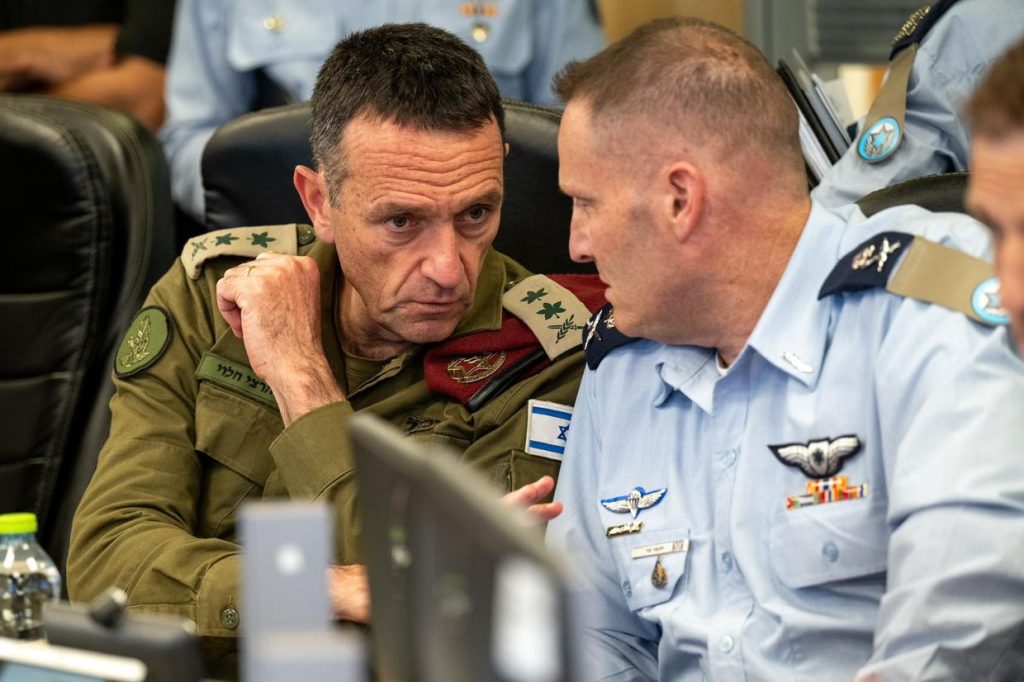Ukraine’s Foreign Ministry condemned Iran’s attack on Israel and warned of regional escalation, calling for global defense of democracy. Israel’s Defense Forces reported that Iran launched drones, cruise missiles, and ballistic missiles, with most being intercepted outside Israel. A few missiles caused minor damage to an Israeli air base in response to previous attacks between Israel, Hamas, and Hezbollah. The US, France, and the UK assisted in intercepting Iranian missiles, but have not participated in defending Ukraine from Russian attacks. Poland declined to shoot down a Russian missile last month due to concerns about civilian safety. Ukraine’s military intelligence noted that Iran and Hezbollah train Russian drone operators in Syria for use in Ukraine. Additionally, 47 Ukrainians were evacuated from Gaza and arrived in Moldova on a plane.
In response to Iran’s attack on Israel, the House of Representatives will consider a bill in support of Israel, potentially combining aid for Israel and Ukraine in one bill. There were discussions about Western countries providing air defense to Ukraine, but no participation in downing missiles and drones. Poland’s refusal to intercept a Russian missile raised concerns about civilian safety. Iran’s provision of drones to Russia, utilized against Ukrainian cities and infrastructure, highlights ongoing conflicts involving international powers. The recent evacuation of Ukrainians from Gaza emphasizes the complex geopolitical situation involving multiple parties in the region.
The attack by Iran on Israel resulted in international condemnation and calls for global defense of democracy against such aggressions. Israel’s defense measures against the Iranian attack showcased cooperation with the US, France, the UK, and Jordan, highlighting the importance of international alliances in times of crisis. The ongoing conflicts in the region, including between Israel, Hamas, Hezbollah, and now Iran, underscore the volatile nature of the situation and the need for diplomatic efforts to prevent further escalation. The involvement of multiple countries in both the defense of Israel and the ongoing conflict in Ukraine adds another layer of complexity to the geopolitical landscape in the region.
The role of Iran in supplying Russia with drones used in attacks on Ukraine raises concerns about the interconnected nature of conflicts in the region, with various international actors playing a part. The refusal of Poland to intercept a Russian missile due to safety concerns reflects the challenges faced by countries in balancing security with civilian welfare. The evacuation of Ukrainians from Gaza illustrates the impact of regional conflicts on civilians caught in the midst of geopolitical tensions. The consideration of a bill in support of Israel by the US House of Representatives suggests ongoing support for Israel amidst heightened tensions in the region.
As the situation in Ukraine and the Middle East continues to evolve, it is essential for the international community to prioritize diplomatic solutions and support independent journalism to ensure accurate reporting of developments. The interconnected nature of conflicts in the region, involving Iran, Israel, Russia, and other countries, highlights the complexity of the geopolitical landscape and the need for coordinated efforts to de-escalate tensions. The evacuation of Ukrainians from Gaza serves as a reminder of the human cost of conflict and the importance of ensuring the safety and well-being of civilians caught in the crossfire. By supporting independent journalism and advocating for peaceful resolutions to conflicts, individuals can play a role in promoting transparency, accountability, and diplomacy in the face of escalating tensions in the region.















